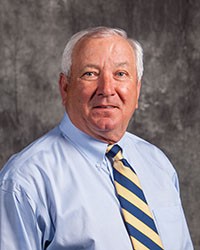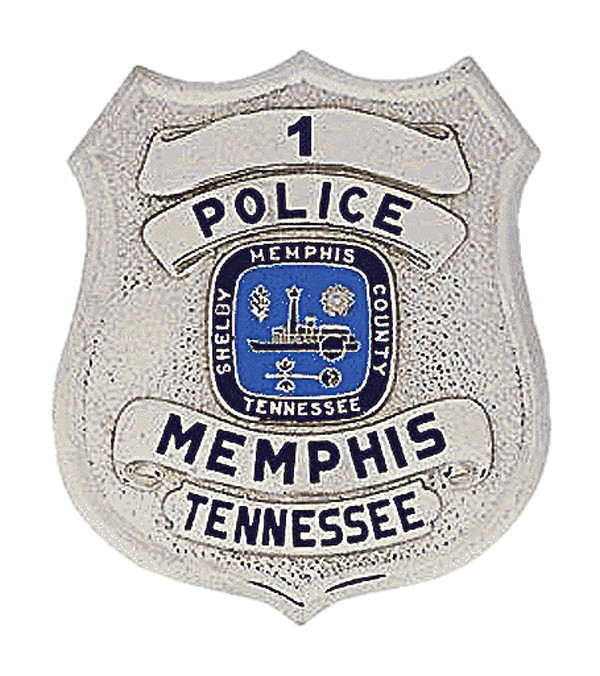
Memphis Mayor Jim Strickland’s proposal to give 3 percent pay increases to all commissioned Memphis Police Department (MPD) officers and Memphis Fire Department (MFD) personnel continues to receive pushback from unions representing the two agencies.
After the mayor announced the move last week, he was hit with criticism from both the fire and police unions, who said there was not enough discussion of the increases.
Strickland touted the proposal is his weekly newsletter on Friday.
[pullquote-2]
“It’s the right thing to do for the men and women who quite literally put their lives on the line every day,” Strickland said in his email. “I’m incredibly proud of what we’ve partnered with the city council to accomplish, thanks to improving revenues, fiscal discipline, and some private donors.”
Dan Springer, the deputy director of media affairs in Strickland’s office, said the proposed 3 percent increases aren’t related to the private donations mentioned by the mayor. Instead, Springer said it refers to the $6.1 million grant previously given to the Memphis and Shelby County Crime Commission (MSCC) for retention and recruitment.
Details surrounding private donations to the MSCC were recently at the center of a lawsuit filed earlier this year by Wendi Thomas, founder of MLK50: Justice Through Journalism, and the Marshall Project, a New York-based nonprofit news organization.
Less than a week after the suit was filed, the names of the 2018 donors were available on the MSCC’s website, according to MLK50. Some of the largest donors last year, giving more than $100,000, include AutoZone, First Tennessee Foundation, and Memphis Tomorrow.
The cost of raises for 1,632 fire department employees and 2,089 police officers would be about $9 million. That’s nearly all of the additional $10 million Strickland said is added to the budget each year.
“The pay increases we propose will eat up the vast majority of that — which I think sends a strong message of just how big of a priority public safety pay is,” Strickland said last week.
 MPA
MPA
Michael Williams, president of the Memphis Police Association
Michael Williams, president of the Memphis Police Association (MPA), questions the motive behind the proposed pay increase, saying that officers are “being used as political pawns.”
“We knew that we would not get a raise last year,” Williams told the Flyer. “But because this is an election year, we are being used as that golden nugget.”
Williams also said that 3 percent is not an adequate increase, but only a “gesture.”
“We have fallen too far behind and now we are playing catch-up,” Williams said. “It will not make a dent in what we really should be getting paid for the job that we do.”
Between 2010 and 2015, officers didn’t receive any raises. During that time from 2011 to 2013, officers instead had their pay cut by 4.6 percent.
Even after the 3 percent increase, Williams said MPD will remain one of the lowest-paid departments in Shelby County.
“We deserve to be brought up to equal pay of the highest-paid department in Shelby County for now,” Williams said. “That would be a great start and we feel is not asking too much.”
[pullquote-1]
Ursula Madden, chief communications officer for the city, responded to Williams’ claims saying that “it unfortunate that MPA views a 3 percent raise in this light.”
“If council approves this raise, this administration will have increased police officer pay between 8.75 percent and 10.75 percent since 2016,” Madden said. “Would the mayor like to do more? Absolutely. But, we have a finite amount of resources and this is the best we can do.”
After Strickland announced the increases last week, representatives of both the fire and police unions said the announcement was made without proper negotiations and that they hadn’t agreed to the 3 percent proposal.
 MFA
MFA
Thomas Malone, president of Memphis Fire Fighters Association
Thomas Malone, president of the Memphis Fire Fighters Association (MFFA), said Strickland’s announcement of the pay increases came at the same time he and others from MFFA were meeting with city officials to discuss the increases: “No decisions had been made.”
Malone said he wasn’t bothered by the amount of the increase, but by the fact that there was no real negotiation period before the proposal was made public.
Malone met with city officials Wednesday morning to renegotiate the amount, proposing a 3.8 percent increase rather than the 3 percent set forth by the mayor.
Malone said the meeting was “uneventful” and that the group is at a standstill until the mayor presents his budget to the Memphis City Council next month.
“I think we made an offer that was very well thought out and data driven,” Malone said. “From our research it’s an amount that the city can afford. We are not trying to break the bank here.”
The mayor will present the 2020 fiscal year budget to the city council on April 16th. The council has until the end of May to discuss, alter, and pass the budget.
